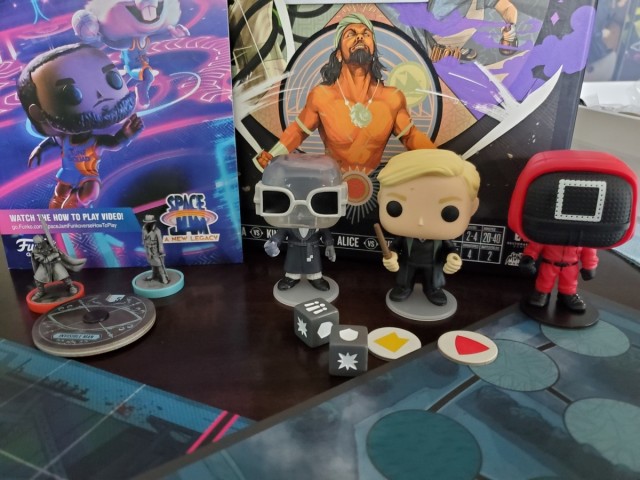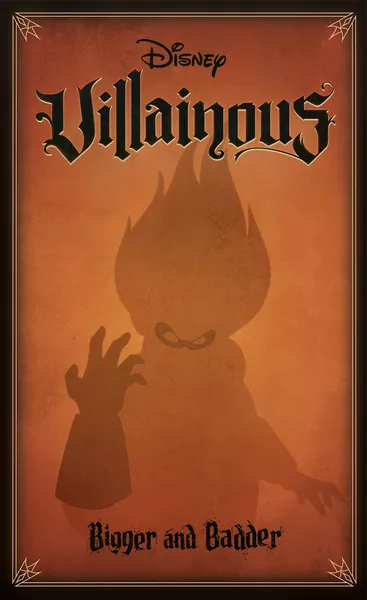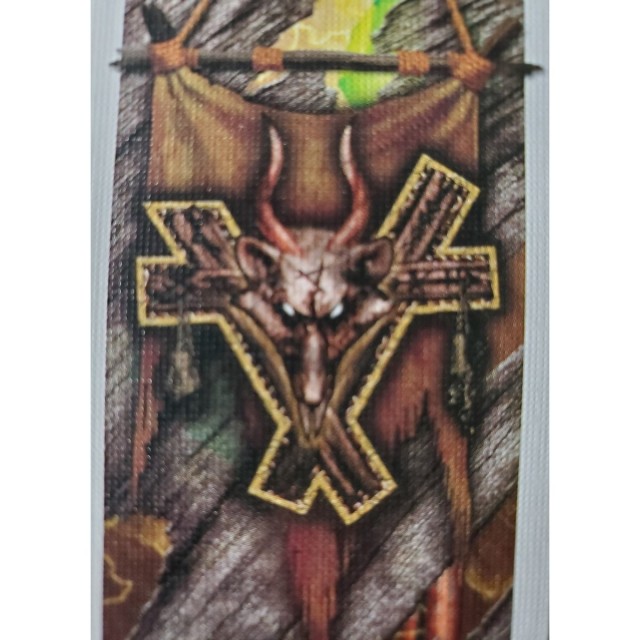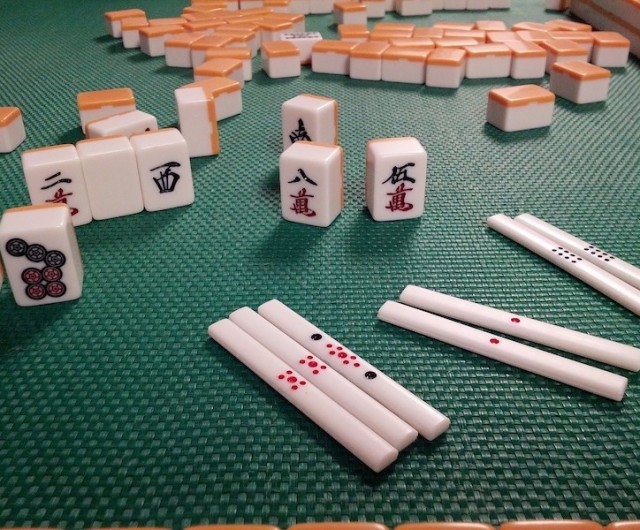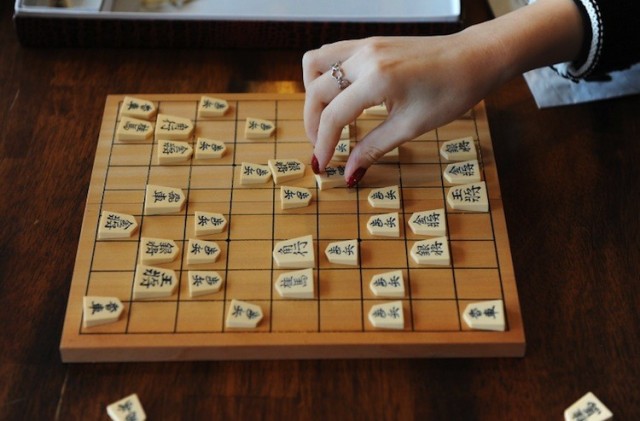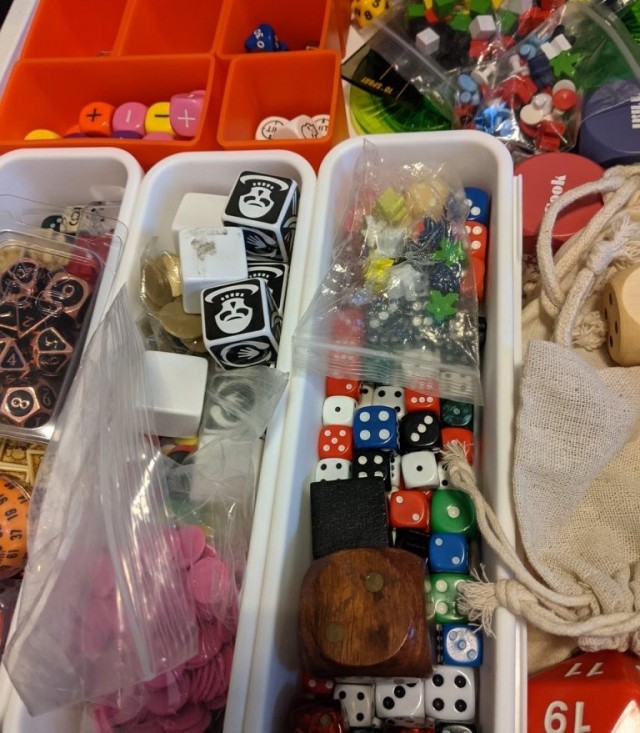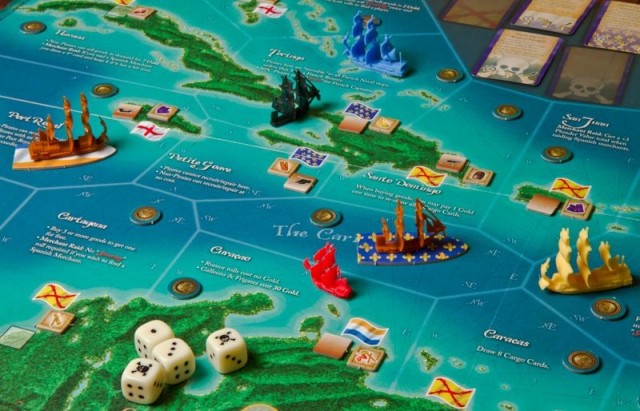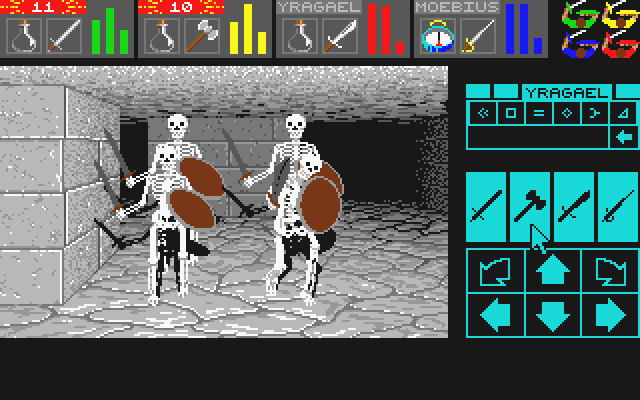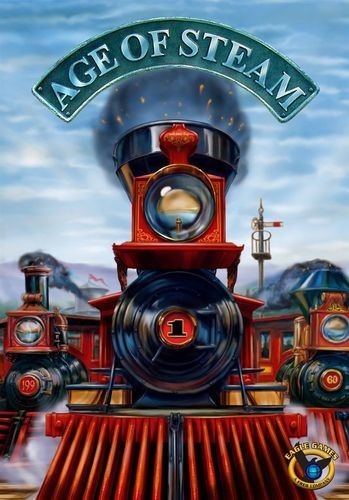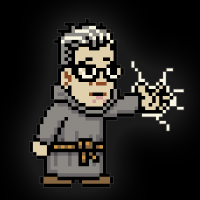I worked in child care for a long time, and kids like playing games, but sometimes the games that they're most excited about playing are the ones that are over their heads. It was part of my job to figure out how to modify activities for kids age K-6, and I like teaching games, so this is something I'd like to work to get better at. Most Euros seem pretty hard to scale back for younger players because they're such tightly controlled systems, but modular games with dice and minis generally seem a bit easier, despite how complicated they can get. I've also got four nephews and a niece, and started the oldest two (now a 13 y.o. nephew and the 11 y.o. niece) at 6 and 4 on Heroscape. My girlfriend's 5-year-old son has watched us playing some games and of course he wants to be involved.
Heroscape had a kids' version (the Basic Game) built in. It's really no good for more than a play or two, even if your kid is 5. If the kid knows his numbers from 1-9 on sight, and knows the difference between Red, Blue, Green, and Gray, then you're good to go! You can start playing with the real side of the cards and slowly introduce new units and their powers. "Sgt. Drake can use a grappling hook to pull himself on top of stuff, and he's so fast that guys can't even shoot at him." Even if they can't read, kids tend to absorb stuff like this pretty quickly in my experience. Kids can start as young as 3 or 4 by just playing with the pieces and trying to build maps. I can think of no better game for a dad and sons. And it seems like Tom Vasel played it quite a bit with his daughters. My nephew who played this at 6 really likes games now, even though most of the time he'd rather play computer games with his friends.
X-Wing- the box says 14+ somewhere on it, and they might be right, but you know what, I'm gonna try slowly teaching a 5-year-old anyway. There are some basic rules in the box but I had to go simpler than that. I started off our very first game without any ship movement at all. It was his X-Wing v. my TIE Fighter, and we just traded shots until I blew up- that showed him how the combat worked. Then I put one asteroid down and we started trying to do maneuvers before shooting. He had already watched us and knew how to check for range and use the front 90 degree firing arc (he still needed to be reminded to start at the edge of the base). But the thing he had the most difficulty with completely blindsided me. He couldn't manipulate the dials! He kept holding both the front and back together. I tried different ways of explaining it, and we both got a little frustrated after about 3-4 minutes of effort. Maybe if I let him mess with one for 30 minutes he'd figure it out, but we opted instead to just have him point to the maneuver he wanted to do and I'd see if it was on his dial. I was still picking (but hiding) my maneuver ahead of time, and I think this was still one step too hard for him. The next time we play I'll simply execute my maneuver and then he'll be able to react to where I am. I'll continue with 1 ship per side for awhile I think.
D&D- outside of war games, RPGs are some of the most intimidating games around for a lot of people, but we tried it with the same X-wing attempting kid from above. He has played happily for hours in two sessions now, but I bet if we tried Pandemic he'd get bored and confused within minutes. We gave him the well-armored Fighter, told him a few things about the character, and he was ready. He loved the fact that it was a storytelling game and that there were all of these different dice to roll. He could just say what he wanted to try to do, and I could tell him what die to roll and tell him what happened. His mom was sitting next to him if he needed to refer to anything off of his character sheet, but the great thing about RPGs is that the burden of understanding all of the rules is on the DM- I think it's almost more fun if people aren't trying to optimize the shit out of their characters. 5e was a natural 20. The main thing to modify here is the kind of language you might use to describe everyone getting wounded.
Sure, we can all play Loopin' Chewie (which he also loves), but sometimes kids get excited by trying a more complicated and challenging game. What games have you had success with playing with younger kids? How did you modify teaching the games or breaking them down?
 Games
Games How to resolve AdBlock issue?
How to resolve AdBlock issue? 